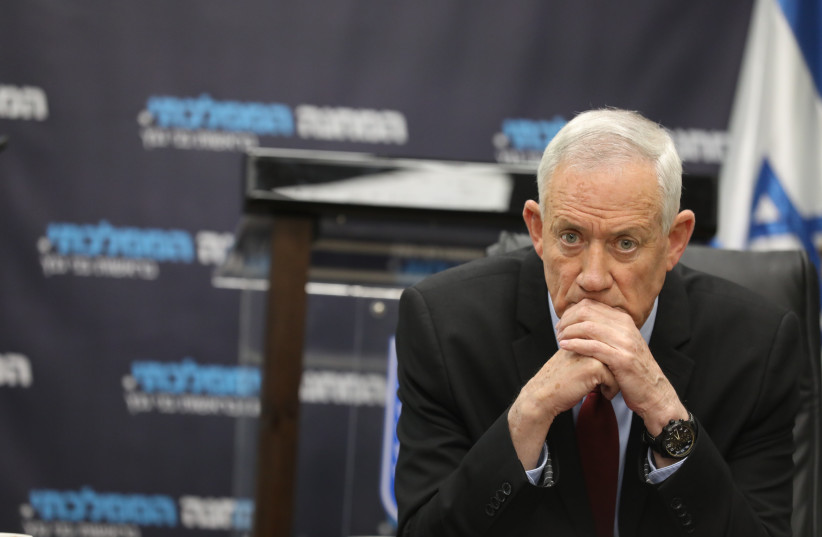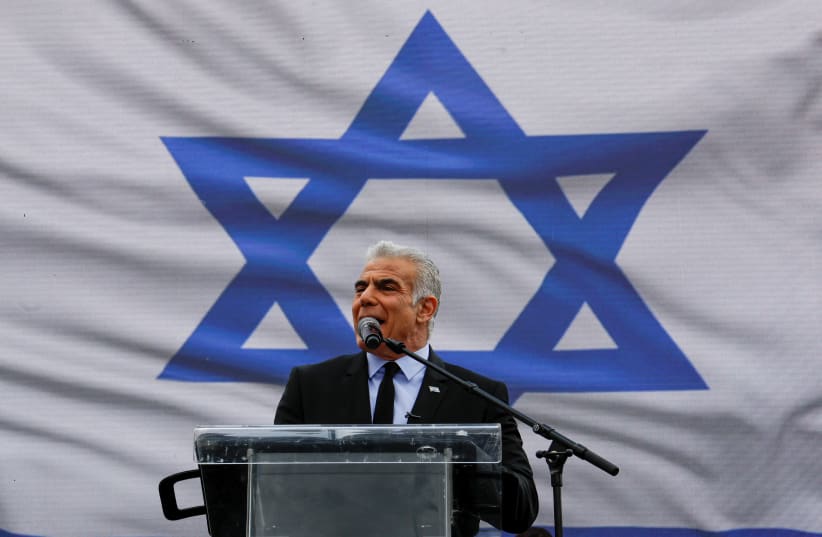Prime Minister Benjamin Netanyahu's announcement that he would freeze the judicial reform legislation until after the Knesset's Passover recess split the central opposition parties, as opposition leader and Yesh Atid party chairman MK Yair Lapid and National Unity chairman MK Benny Gantz agreed to enter negotiations, while Yisrael Beytenu chairman MK Avigdor Liberman and Labor chairwoman MK Merav Michaeli warning of a trap.
Lapid said that if indeed the legislation would come to a "real and complete" stop, he was prepared to enter dialogue at the president's residence.
"If the government comes for real and fair dialogue, we will be able to exit this crisis stronger and more united, and turn this moment into a defining moment of shared life," Lapid said.
However, if Netanyahu conducts political "aerobics," he will find facing him "hundreds of thousands of Israeli patriots who are determined to fight for our democracy," Lapid said.
Lapid refused to call for the protests against the judicial reforms to pause, saying that it was best to wait and see whether Netanyahu acted on what he said.

Benny Gantz's comments
Gantz also said he was willing to enter a dialogue.
The prime minister was responsible for the schism in Israeli society, Gantz said, and called on Netanyahu to "remove all the threats, the ultimatums and the extreme remarks that distance us from our destination."
Gantz stressed that while he still opposes the government and will continue to do so, he would wholeheartedly support whatever was vital for Israel's security, rule of law and democracy.
MK Avigdor Liberman
Yisrael Beytenu chairman MK Avigdor Liberman and Labor chairwoman MK Merav Michaeli claimed that Netanyahu was lying.
"The prime minister's speech proves that he is determined more than ever to complete all of the legislation," Liberman accused, adding that Netanyahu "had no intention to advance real dialogue," but rather intended to calm the protests while accusing the opposition of not agreeing to a compromise.
Liberman called on the protests to continue and to form a new coalition based on what he called the Zionist parties, in order to end the crisis with broad consensus.
Labor leader Merav Michaeli
Michaeli claimed that Netanyahu's statement was a trap.
"On the day when it became clear that Netanyahu learned how to put down demonstrations from the Poles, he again speaks only to his supporters, with a speech full of lies and incitement towards half of the people. There is no suspension and nothing else. How many more times can we fall into the trap of cooperating with Netanyahu?" she said.
"We have said all along - only a complete shelving of the dangerous judicial overthrow laws. Netanyahu is not shelving them, he is buying time at the expense of our democracy. The struggle and protest must continue and intensify."
